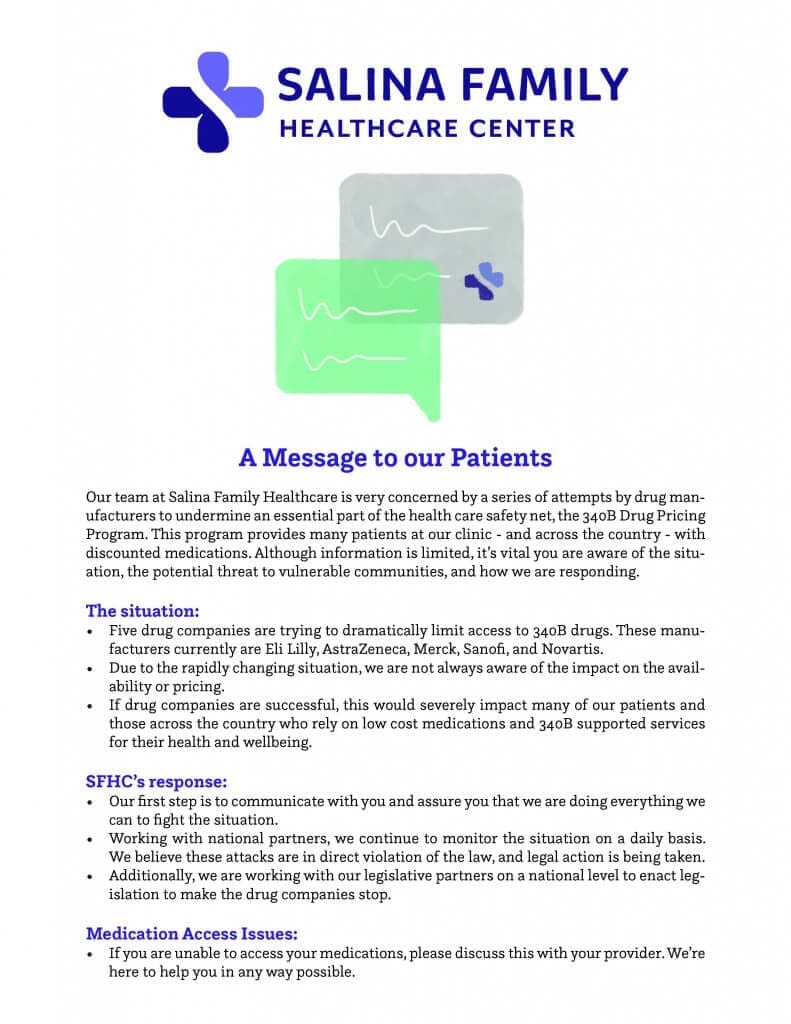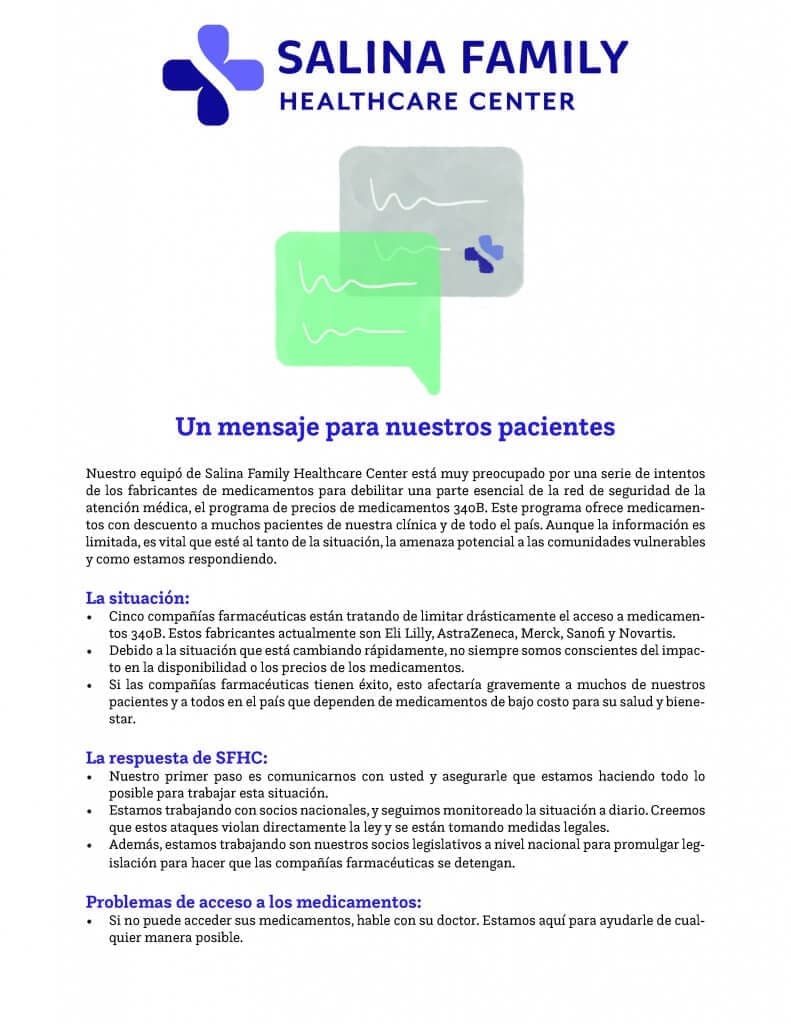Big Pharma has launched a stealth assault on a critically important drug discount program low income patients depend on for life-saving medicines and services – and make no mistake, lives are at stake. The 340B program was created by Congress in the early 1990s to give safety-net providers access to reduced pricing they could not negotiate on their own. Republicans and Democrats alike support the program because it helps stretch limited federal resources for the common good.
Everyone agrees high drug prices must be addresed and the 340B Drug Pricing Program helps Community Health Centers be part of the solution. For Community Health Centers, 340B discounts make medications and services affordable for nearly 30 million patients nationwide. At Kansas Community Health Centers, 275,000 patients made 870,000 visits in 2019. These patients typically suffer from a higher incidence of chronic disease, poverty and lack of insurance. They include veterans, those suffering from HIV, people who have lost their jobs and health insurance in the economic decline, and even essential workers who test positive for COVID-19 but do not require hospitalization. The Kansas patients include 90,000 uninsured and almost 80,000 receiving Medicaid.
The cost of medicines can easily push them further into poverty, disease, and even death. A pandemic would seem like the worst possible time to threaten a critical program that makes medicines affordable for the poor. Yet, that is precisely what is going on.
Pharmaceutical manufacturers are utilizing a “death by a thousand cuts” approach to dismantle and weaken 340B discounts. PhRMA’s range of tactics include taking measures to severely restrict how 340B providers can contract with pharmacies and use the program to benefit their patients. Drug makers are also imposing extensive reporting requirements that are unnecessary and will have a negative impact on patients (health centers already comply, by law, with strict reporting standards describing how the discounts are used).
Compounding the problem are third-party vendors and pharmacy benefit managers (PBMs) intent on pocketing profits that could be used to lower the cost of vital medications, provide additional critically needed services, and improve patient outcomes.
Drug manufacturers claim limiting 340B discounts is necessary due to abuse and expansion of the program. Yet, health centers have proven to be excellent stewards of tax dollars and 340B discounts. They are nonprofits, accountable by law, and driven by mission – not money – to help the people of their community. In contrast, these pharmaceutical manufacturer actions could cause patients to very well die as a result of losing access to vital medications and services.
Congress must act now to save this vital program and the patients it serves – lives are at stake.


